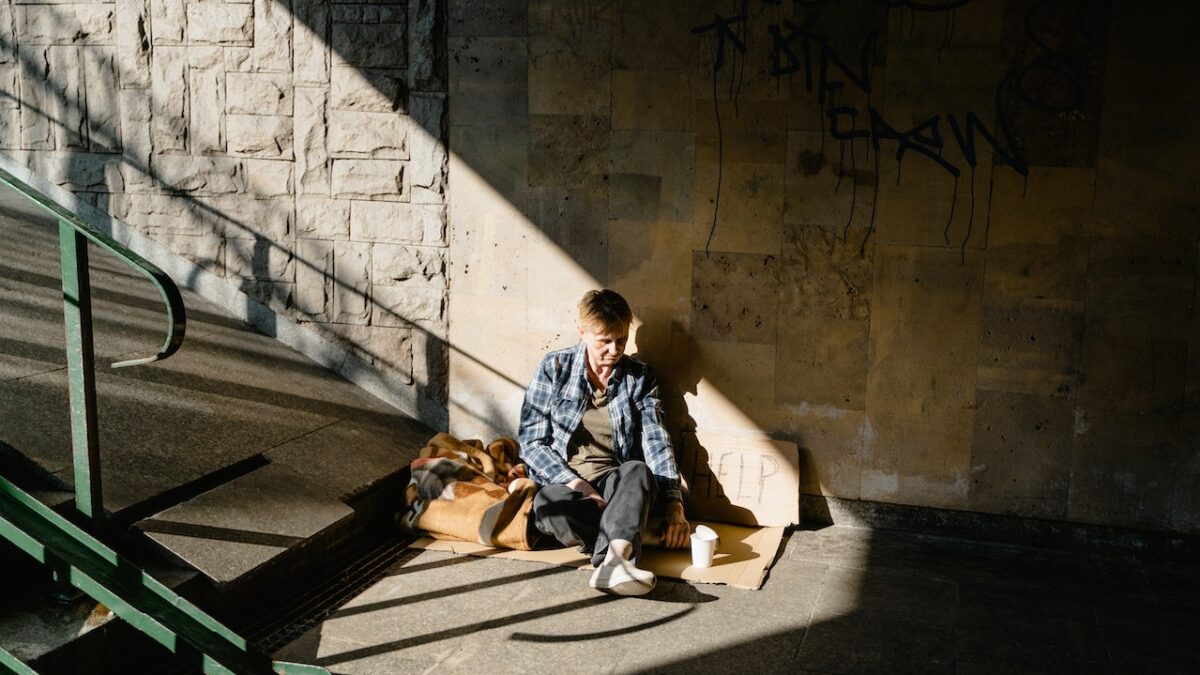Lawmakers across the spectrum agree that poverty is a perennial crisis. But if they are ever going to come together to find an effective solution, they must first understand that poverty is not merely a money problem. Instead, poverty prevails in the absence of economic freedom.
That is the message we received from some of the 26 percent of Pennsylvanians with low incomes surveyed in a comprehensive, multi-year study that sought out the voices of those earning below 200 percent of the poverty line. This isn’t just one state needing a state solution—it’s indicative of the relationship between poverty and prosperity nationwide.
Ryan, who is unemployed, said the path out of poverty is clear: “It’s finding a good kind of job. I’ve been looking, but it’s hard, trying to find a job… that’s paying good, with my experience, that’s the problem.”
If poverty could be solved by money alone, the trillions of dollars federal and state governments have spent to eliminate poverty over the past 60 years would have done the job by now. If we want to get serious about lifting those living paycheck-to-paycheck, the solution is simple: We must create the conditions that increase the size and reach of paychecks.
“The income at my job would probably just be the biggest factor,” said Ethan, who works full-time as an insurance adjuster. “If that was higher, then, obviously, I could pay off my bills quicker.”
Pennsylvanians at the poverty line are more likely to say debt (46 percent) or taxes (29 percent) are the largest obstacles to achieving economic stability. The average respondent interviewed by the Commonwealth Foundation paid about $5,000 each year in taxes—about 14 percent of their gross household income.
Herein lies the key to meeting the needs of those living in poverty: Policymakers must look for ways to expand prosperity, rather than just attempting to spend our way out of the problem.
That is why state lawmakers—nor those in Washington, D.C.—cannot simply add more commas to their state budgets. The Pennsylvania state budget jumped 51 percent since 2016, and 10 percent in the last year alone, while still poverty increased. Instead, policy reforms must focus on expanding opportunities for people like Ethan and Ryan to alleviate economic vulnerability.
Lower government spending is a sure path to reducing poverty. A February 2023 study found a direct link between government spending levels and poverty rates. Consider Pennsylvania: If the commonwealth were to achieve even a one-point increase in its economic freedom, there would be 176,970 fewer Pennsylvanians living in poverty and household income would increase by $2,338.
Another advance we can make against poverty is to understand it, which means tearing down the myths that pervade the issue—most importantly the idea that only the unemployed live in poverty. In Pennsylvania, more than 60 percent of low-income earners work or are actively looking for work, and more than 30 percent already work full-time.
Nationally, the Bureau of Labor Statistics in 2020 found that 6.3 million Americans—the “working poor”—spent at least 27 hours in the labor force but remain below the poverty line. Another 2015 study found that in the United States, 63 percent of individuals in poverty who are eligible to work are employed.
Nor is poverty an issue reserved for major metropolitan areas: In fact, four of the five Pennsylvania counties with the highest poverty rates are rural. Nationwide, 2019 poverty rates—across all races and ethnicities—were higher in rural than urban areas, or at 15.4 percent compared to 11.9 percent respectively.
State lawmakers can help increase household budgets for those in poverty by reducing the number of obstacles that our poorest residents face, such as high inflation and taxation—both of which are historically linked to unsustainable government spending levels. State governments can also make it easier for individuals to keep their paychecks by offering state-earned income tax credits and preventing unnecessary regulations on home businesses and the gig economy.
If they fail to do so, not only will poverty prevail, but states will see an exodus of residents—notably, to states with higher economic freedom and thus, more opportunities to flourish. It’s no surprise that Pennsylvania has seen more than 250,000 residents leave for other states in the last decade, with many heading to Florida and North Carolina, which rank second and 14th on the economic freedom index, respectively.
Instead of expanding the expensive, complex web of welfare bureaucracy, policymakers can serve America’s poor by getting government out of the way and promoting economic freedom. It’s time to shift the focus of the debate from how to “fix” poverty to how we can foster the conditions necessary for national—and individual—prosperity.
Note: The names of survey respondents have been changed for privacy.









